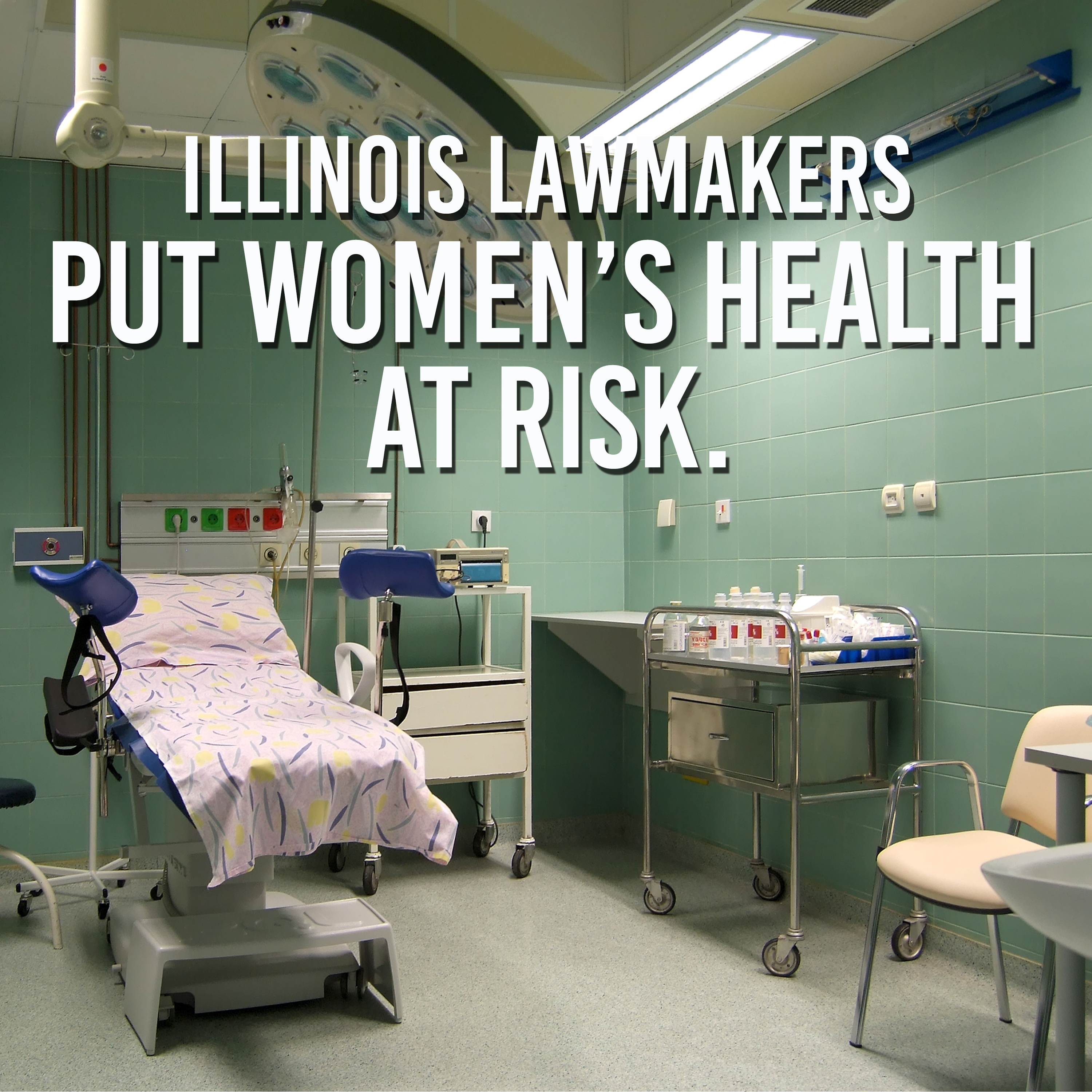Stand With Us
I stand with Women’s Health Comes First and demand that the Illinois General Assembly fix the flawed legislation that has allowed these clinics to go unchecked, leading to deplorable health and sanitary conditions within women’s clinics.
All fields are required
An investigation into the health and sanitary conditions of women’s abortion clinics revealed a severe pattern of disregard for basic medical and sanitation practices among licensed women’s clinics. Despite a pattern of serious health violations and medical malpractice lawsuits, the Illinois General Assembly does not require the Illinois Department of Public Health (IDPH) to conduct regular health and sanitary inspections.
In 2014, 63% of licensed Illinois women’s clinics did not receive a health and sanitary inspection in between two and three-and-a-half years. It was discovered that the lack of regular health and sanitary inspections on these clinics by the IDPH left women open to the prospect of unsterile surgical tools, dirty operating rooms, incomplete medical attention, infections, and even death.
Since the release of the Women’s Health at Risk report citing this dangerous neglect, the Illinois Department of Public Health has performed health and sanitary inspections on certain, licensed women’s clinics.
However, many Illinois clinics still remain unlicensed, have not been inspected at all, or have gone years without a health inspection by the IDPH.
A copy of the Illinois Department of Public Health’s sanitary inspection policy for licensed women’s clinics was requested. No such policy exists.
Discrepancies in Illinois law have allowed women’s clinics to go uninspected, leading to gross and abysmal oversight which could jeopardize women’s health.We call upon the Illinois General Assembly to address the discrepancies in the law by requiring the Department of Public Health to conduct routine health and sanitary inspections on these clinics, increase transparency by informing women of unsafe clinics, and treat women’s clinics equally by holding them to reasonable standards of care.
Tanning Salons

Inspected Every Year
Nursing Homes

Inspected a Minimum of Every 15 Months
Chicago Restaurants

Inspected Every Year




